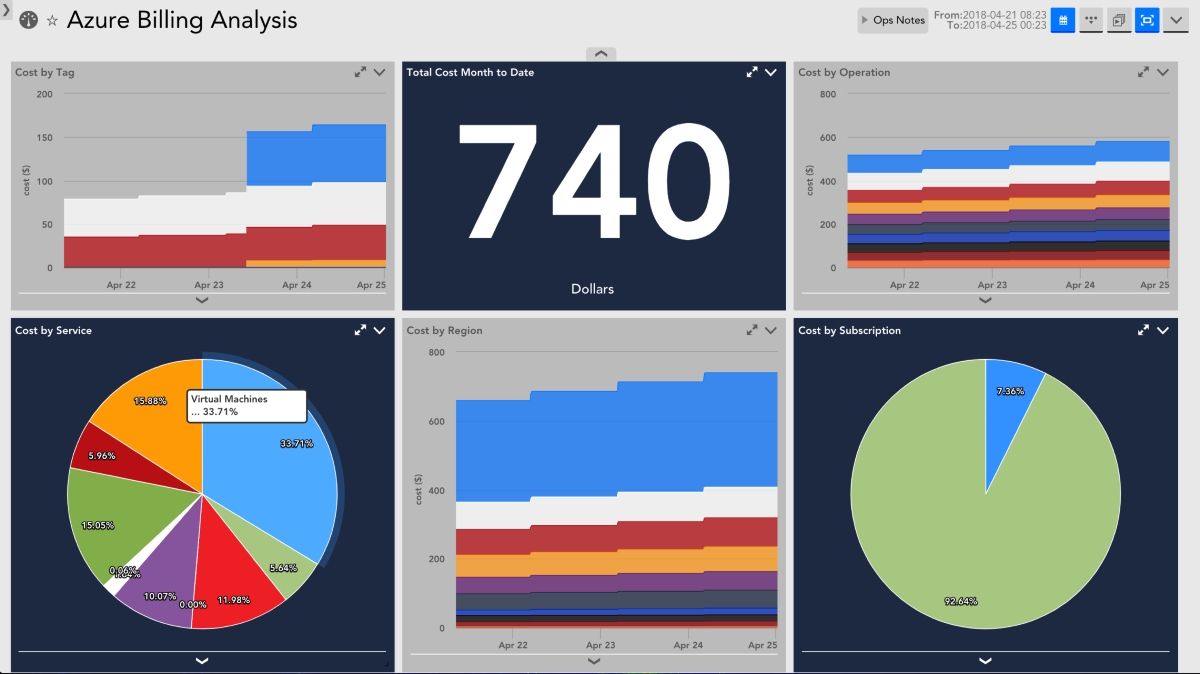Home>Finance>What To Do If I See A Credit Inquiry I Don’t Know Of


Finance
What To Do If I See A Credit Inquiry I Don’t Know Of
Published: March 4, 2024
If you spot an unfamiliar credit inquiry, take immediate action to protect your finances. Learn what steps to take to address this potential issue. Protect your financial health today!
(Many of the links in this article redirect to a specific reviewed product. Your purchase of these products through affiliate links helps to generate commission for LiveWell, at no extra cost. Learn more)
Table of Contents
**
Introduction
**
Discovering a credit inquiry on your credit report that you don’t recognize can be a concerning experience. A credit inquiry is a record of when someone requests to view your credit report, and it is typically generated when you apply for credit, such as a loan or credit card. However, if you notice an unauthorized credit inquiry, it could be a sign of potential fraud or identity theft. It’s crucial to take immediate action to address this issue and safeguard your financial well-being.
In this comprehensive guide, we will explore the steps you should take if you encounter a credit inquiry that you don’t recognize. From understanding credit inquiries to disputing unauthorized inquiries and placing fraud alerts, we’ll provide you with the knowledge and tools to navigate this situation effectively. Additionally, we’ll discuss the importance of monitoring your credit regularly to stay informed about any changes to your credit report. By taking proactive measures and staying informed, you can protect your financial reputation and minimize the impact of unauthorized credit inquiries.
Understanding Credit Inquiries
Before delving into the actions to take when encountering unfamiliar credit inquiries, it’s essential to understand what credit inquiries are and how they can impact your financial standing. A credit inquiry, also known as a “hard pull” or “hard inquiry,” occurs when a lender or creditor checks your credit report as part of the decision-making process for a credit application. This can include applications for credit cards, loans, mortgages, or other forms of credit.
There are two types of credit inquiries: hard inquiries and soft inquiries. Hard inquiries are generated when you apply for new credit, and they can have a temporary impact on your credit score. On the other hand, soft inquiries are typically not initiated by you and do not affect your credit score. These may occur when a lender pre-approves you for a credit offer or when you check your own credit report.
It’s important to note that while hard inquiries can affect your credit score, they are a normal part of the credit application process. However, if you discover unauthorized hard inquiries on your credit report, it could be a red flag for potential fraudulent activity. By understanding the distinction between hard and soft inquiries and their implications, you can better assess the legitimacy of the inquiries listed on your credit report.
Reviewing Your Credit Report
When you encounter a credit inquiry that you don’t recognize, the first step is to obtain a copy of your credit report from all three major credit bureaus: Equifax, Experian, and TransUnion. Under the Fair Credit Reporting Act (FCRA), you are entitled to receive a free copy of your credit report from each bureau once every 12 months through AnnualCreditReport.com. Additionally, some credit monitoring services provide access to your credit reports and scores.
Upon receiving your credit reports, carefully review each one to identify any unfamiliar credit inquiries. Pay close attention to the list of inquiries and verify whether you authorized each one. It’s important to scrutinize not only the names of the companies that made the inquiries but also the dates on which they occurred. By comparing the inquiries with your own credit application history, you can determine if any unauthorized inquiries have been made in your name.
It’s worth noting that credit reports may also include soft inquiries, which are typically generated for informational or promotional purposes and do not impact your credit score. While soft inquiries are not a cause for concern, unauthorized hard inquiries should prompt immediate action to address potential fraud or identity theft.
By diligently reviewing your credit reports from all three bureaus, you can gain a comprehensive understanding of your credit inquiry history and identify any discrepancies or unauthorized activities that require further investigation.
Disputing Unauthorized Inquiries
If you discover unauthorized credit inquiries on your credit report, it’s crucial to take prompt action to dispute these entries and prevent any further negative impact on your credit profile. The Fair Credit Reporting Act (FCRA) empowers consumers to dispute inaccurate or unauthorized information on their credit reports, including unauthorized credit inquiries.
The first step in disputing unauthorized inquiries is to directly contact the credit bureau that generated the report containing the unauthorized inquiry. Each credit bureau has specific procedures for filing disputes, and it’s essential to follow their guidelines to ensure a thorough investigation. You can typically initiate a dispute online, by phone, or by mail, providing detailed information about the unauthorized inquiry and supporting documentation, if available.
Upon receiving your dispute, the credit bureau will conduct an investigation to verify the accuracy of the inquiry. During this process, the bureau will reach out to the entity that made the inquiry to confirm its legitimacy. If the inquiry is found to be unauthorized, the credit bureau is required to remove it from your credit report, thereby mitigating any negative impact on your credit score.
It’s important to maintain detailed records of your dispute, including confirmation of the dispute submission, correspondence with the credit bureau, and any relevant documentation. By doing so, you can track the progress of the dispute and ensure that the unauthorized inquiry is effectively addressed.
Additionally, it’s advisable to monitor your credit reports in the following months to confirm that the unauthorized inquiry has been successfully removed. If the inquiry persists or if you encounter any challenges during the dispute process, you may consider seeking guidance from consumer protection agencies or legal professionals specializing in credit reporting issues.
Placing a Fraud Alert on Your Credit Report
Placing a fraud alert on your credit report is a proactive measure that can help mitigate the potential risks associated with unauthorized credit inquiries and protect your financial identity. A fraud alert notifies creditors and lenders that you may be a victim of identity theft, prompting them to take additional steps to verify your identity before extending credit in your name.
There are three types of fraud alerts that you can place on your credit report:
- Initial Fraud Alert: This alert lasts for 90 days and is appropriate if you suspect that you may be a victim of identity theft.
- Extended Fraud Alert: If you have a confirmed identity theft case, you can request an extended fraud alert, which remains in place for seven years.
- Active Duty Military Alert: This alert is specifically designed for active duty service members and can help protect their credit while deployed.
To place a fraud alert, you only need to contact one of the three major credit bureaus, namely Equifax, Experian, or TransUnion. Once you’ve placed an alert with one bureau, they are required to notify the other bureaus. The bureau you contact will provide you with a free copy of your credit report, and the fraud alert will be reflected in your reports from all three bureaus.
When a fraud alert is active on your credit report, creditors are encouraged to take extra precautions to verify your identity before approving new credit applications. This may involve contacting you directly to confirm that the credit request is legitimate. By adding this layer of security, fraud alerts can help deter potential identity thieves from exploiting your personal information for unauthorized credit inquiries and fraudulent activities.
It’s important to note that while fraud alerts can offer valuable protection, they are not foolproof and may not prevent all instances of identity theft. For enhanced security, you may also consider placing a credit freeze, which restricts access to your credit report and can prevent unauthorized parties from opening new accounts in your name.
Monitoring Your Credit Regularly
Regular monitoring of your credit is a fundamental practice that can help you stay informed about changes to your credit report and promptly address any unauthorized activities or inaccuracies. By actively monitoring your credit, you can detect potential red flags, such as unfamiliar credit inquiries, early on and take appropriate measures to safeguard your financial well-being.
Several methods can facilitate ongoing credit monitoring:
- Credit Monitoring Services: Many companies offer credit monitoring services that provide regular updates on changes to your credit report, including new inquiries, account openings, and significant credit score fluctuations. These services often include alerts and notifications to keep you informed about potential changes that warrant attention.
- Free Annual Credit Reports: Under the Fair Credit Reporting Act, you are entitled to receive a free copy of your credit report from each of the three major credit bureaus—Equifax, Experian, and TransUnion—once every 12 months. By accessing these reports annually, you can review your credit history and identify any unauthorized inquiries or discrepancies.
- Credit Score Tracking: Monitoring your credit score over time can provide insights into your overall credit health and alert you to any unusual fluctuations that may indicate unauthorized activities. Many financial institutions and credit card issuers offer free access to credit scores as part of their customer services.
By leveraging these monitoring methods, you can establish a proactive approach to safeguarding your credit and promptly addressing any concerns that arise. In the context of unauthorized credit inquiries, regular monitoring enables you to detect and address such inquiries before they potentially escalate into more severe instances of identity theft or fraud.
Furthermore, staying attuned to your credit status can empower you to take timely action in response to any unauthorized activities, thereby minimizing the potential impact on your credit score and financial well-being. Consistent vigilance and awareness of your credit profile are essential components of a comprehensive strategy to protect your financial reputation and identity.
Conclusion
Encountering a credit inquiry that you don’t recognize can be a disconcerting experience, but with the right knowledge and proactive measures, you can effectively address this situation and protect your financial integrity. Understanding the nature of credit inquiries, distinguishing between hard and soft inquiries, and reviewing your credit report diligently are essential steps in identifying unauthorized activities and potential signs of fraud.
Disputing unauthorized inquiries through the appropriate channels and placing a fraud alert on your credit report can serve as vital safeguards against identity theft and unauthorized credit activities. By taking these proactive measures, you can mitigate the potential impact of unauthorized inquiries on your credit score and financial standing.
Furthermore, regular monitoring of your credit, whether through credit monitoring services, annual credit reports, or credit score tracking, empowers you to stay informed about changes to your credit profile and promptly address any discrepancies or unauthorized activities. By maintaining a vigilant approach to monitoring your credit, you can detect and address unauthorized inquiries in a timely manner, minimizing their potential repercussions.
Ultimately, by arming yourself with knowledge about credit inquiries and implementing proactive monitoring and protection measures, you can safeguard your financial reputation and identity. In the event of encountering an unfamiliar credit inquiry, swift action and informed decision-making are key elements in preserving the integrity of your credit profile and mitigating the risks associated with potential fraud or identity theft.
Remember, your proactive approach to addressing unauthorized credit inquiries can significantly contribute to maintaining the security and trustworthiness of your financial identity.














